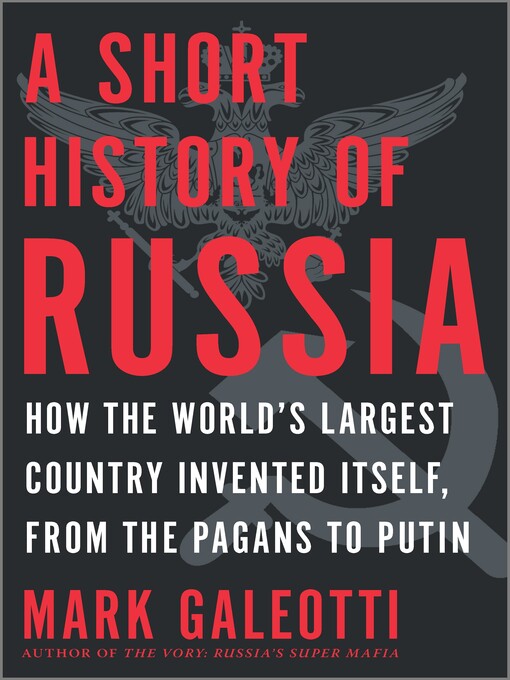"Terrific - and an amazing achievement to cover so much ground in such a short and wonderfully readable book." -Peter Frankopan, bestselling author of The Silk Roads
Russia's epic story told in an accessible, lively and short form, using the country's fascinating history to help us understand its actions today and what the future might hold
A country with no natural borders, no single ethnic group, no true central identity, Russia has mythologized its past to unite its people, to justify its military decisions, and to signal strength to outsiders. Mark Galeotti takes us behind the myths to the heart of the Russian story, covering key moments such as:
A Short History of Russia explores the history of this fascinating, extraordinary, desperate and exasperating country through two intertwined issues: the way successive influences from beyond its borders have shaped Russia, and the way Russians came to terms with this influence, writing and rewriting their past to understand their present and try to shape their future. In turn, this self-invented history has come to affect not just their constant nation-building project but also their relations with the world.


